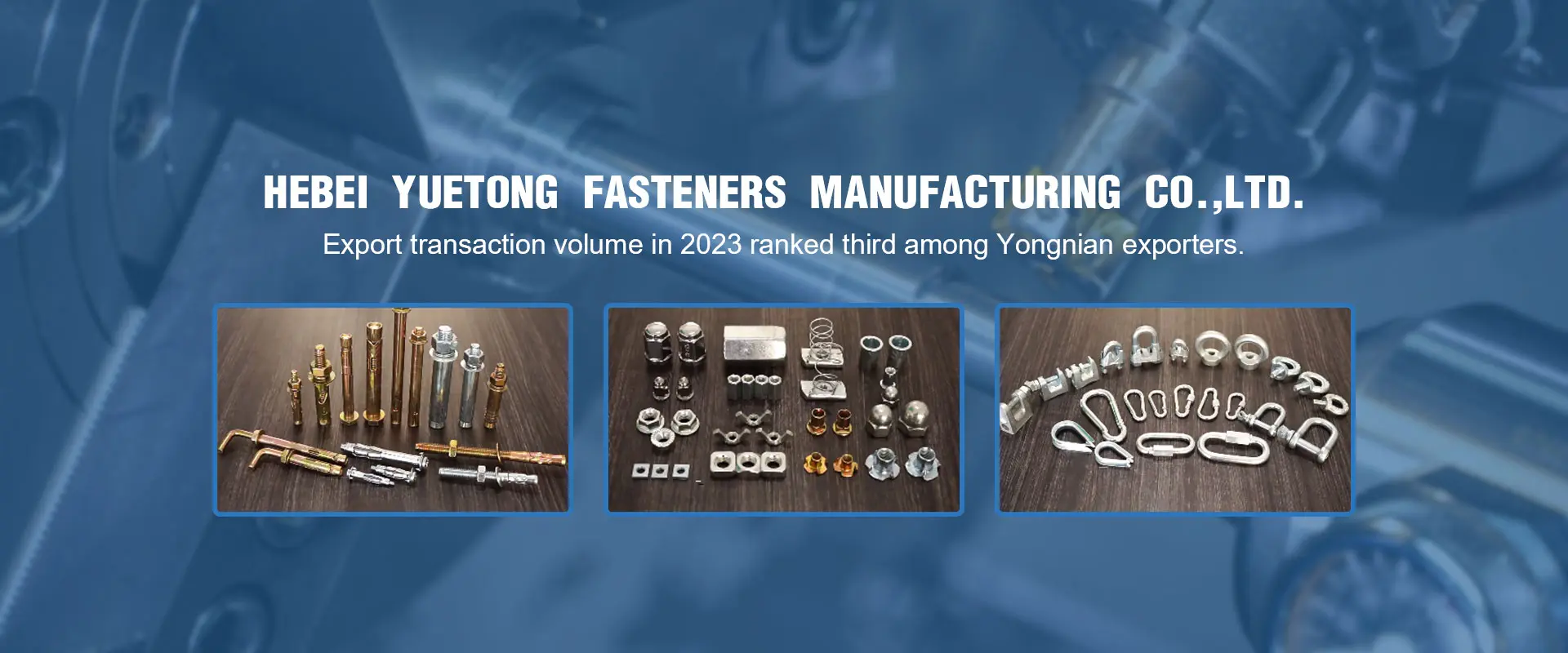Lis . 06, 2024 19:26 Back to list
Exploring the Benefits and Applications of Hex Nut Fasteners in Various Industries
The Versatility of Hex Nut Fasteners
In the realm of mechanical engineering and construction, fasteners play a crucial role in ensuring the integrity and stability of structures and machinery. Among the diverse array of fasteners available, hex nut fasteners stand out due to their unique design, functionality, and versatility. Understanding the characteristics and applications of hex nut fasteners can provide valuable insights into their importance in various industries.
What is a Hex Nut?
A hex nut is a type of fastener that features a hexagonal shape, allowing it to be easily tightened or loosened using a wrench. Typically manufactured from materials such as steel, brass, or nylon, hex nuts are designed to fit onto the corresponding threaded bolts or screws. This design provides a reliable method for clamping two or more components together, ensuring they remain securely fastened under various conditions.
Types of Hex Nuts
Hex nuts come in several types, each tailored for specific applications
1. Standard Hex Nuts The most common type, used in general assembly and fastening applications due to their strength and ease of use. 2. Nylon Lock Nuts Featuring a nylon insert, these nuts provide added friction, preventing loosening due to vibration or thermal expansion. They are particularly useful in automotive and machinery applications where stability is essential.
3. Thin Hex Nuts With a reduced thickness compared to standard hex nuts, thin hex nuts are ideal for applications where space is limited.
4. Serrated Flange Nuts These have serrated edges on the flange, which grip the mating surface, adding extra resistance against loosening.
5. Coupling Nuts Longer hex nuts designed to connect two threaded rods. They are often used in structural and maintenance applications.
Advantages of Hex Nut Fasteners
Hex nut fasteners offer several significant advantages
hex nut fastener

1. Accessibility Their hexagonal shape allows for easy tightening and loosening with standard tools, such as wrenches and socket sets, making them widely accessible and user-friendly.
2. Strength Hex nuts are renowned for their strength and durability, able to withstand high levels of tension and shear forces. This makes them suitable for a wide range of applications, from construction to automotive industries.
3. Versatility Their ability to fit various bolt sizes and types makes hex nuts extremely versatile. They're employed in everything from machinery assembly to furniture construction and automotive repair.
4. Cost-Effectiveness Compared to other types of fasteners, hex nuts are relatively cheap to produce and purchase. This cost-effectiveness makes them an attractive option for both DIY projects and large-scale manufacturing.
Applications
The applications of hex nut fasteners are virtually limitless
- Construction Used in securing beams, trusses, and other structural components, hex nuts are fundamental to ensuring the safety and integrity of buildings and bridges.
- Automotive Industry In cars and trucks, hex nuts are frequently used to secure engine components, axles, and wheel assemblies, where durability and reliability are crucial.
- Manufacturing Many assembly lines rely on hex nut fasteners to join parts securely, ensuring the assembly process is efficient and the final product is robust.
- Home Improvement From assembling furniture to securing outdoor equipment, hex nuts play a vital role in various DIY projects, providing a simple yet effective means of fastening.
Conclusion
In conclusion, hex nut fasteners are indispensable components in a multitude of applications across various industries. Their design, strength, and versatility provide an effective solution for fastening needs, making them a preferred choice for engineers, manufacturers, and DIY enthusiasts alike. As technology evolves and new materials emerge, hex nuts will likely continue to adapt, ensuring they remain relevant in the ever-changing landscape of fasteners. Understanding their importance not only highlights their functionality but also emphasizes the role they play in real-world applications, bolstering the structures and machines that form the backbone of our modern society.


